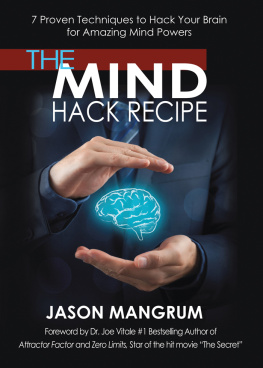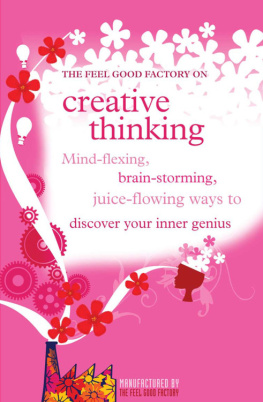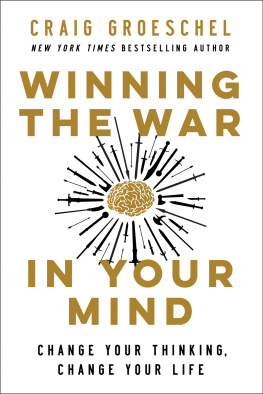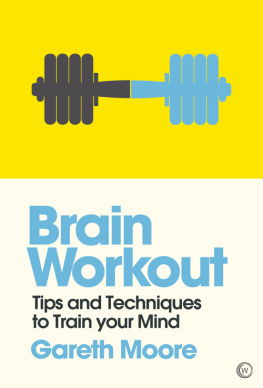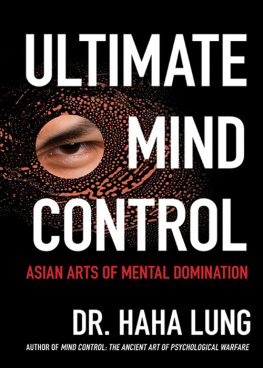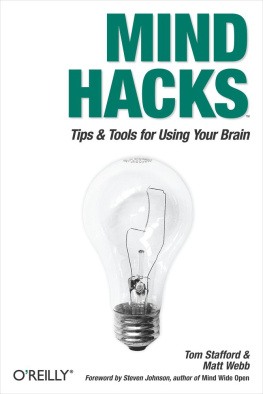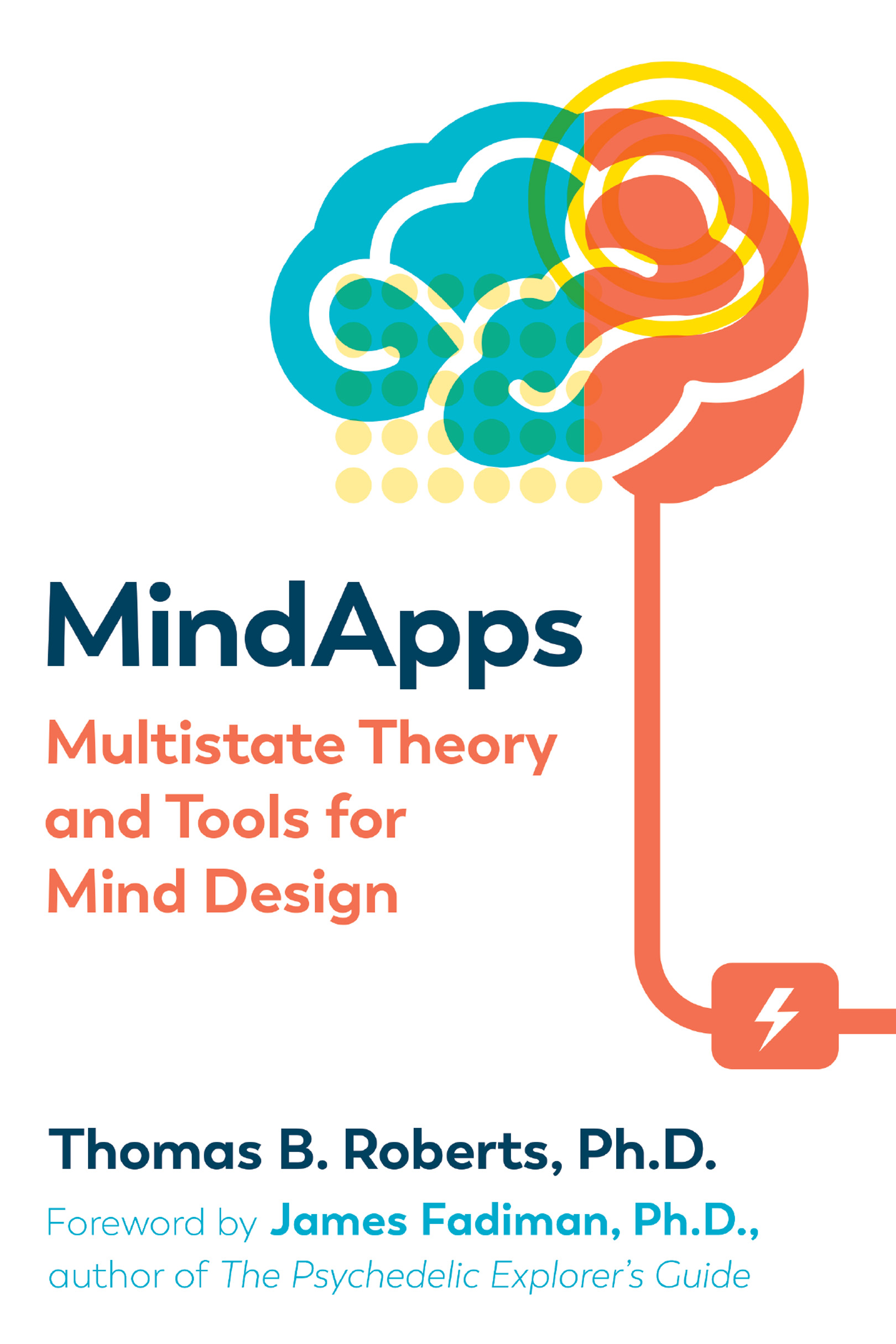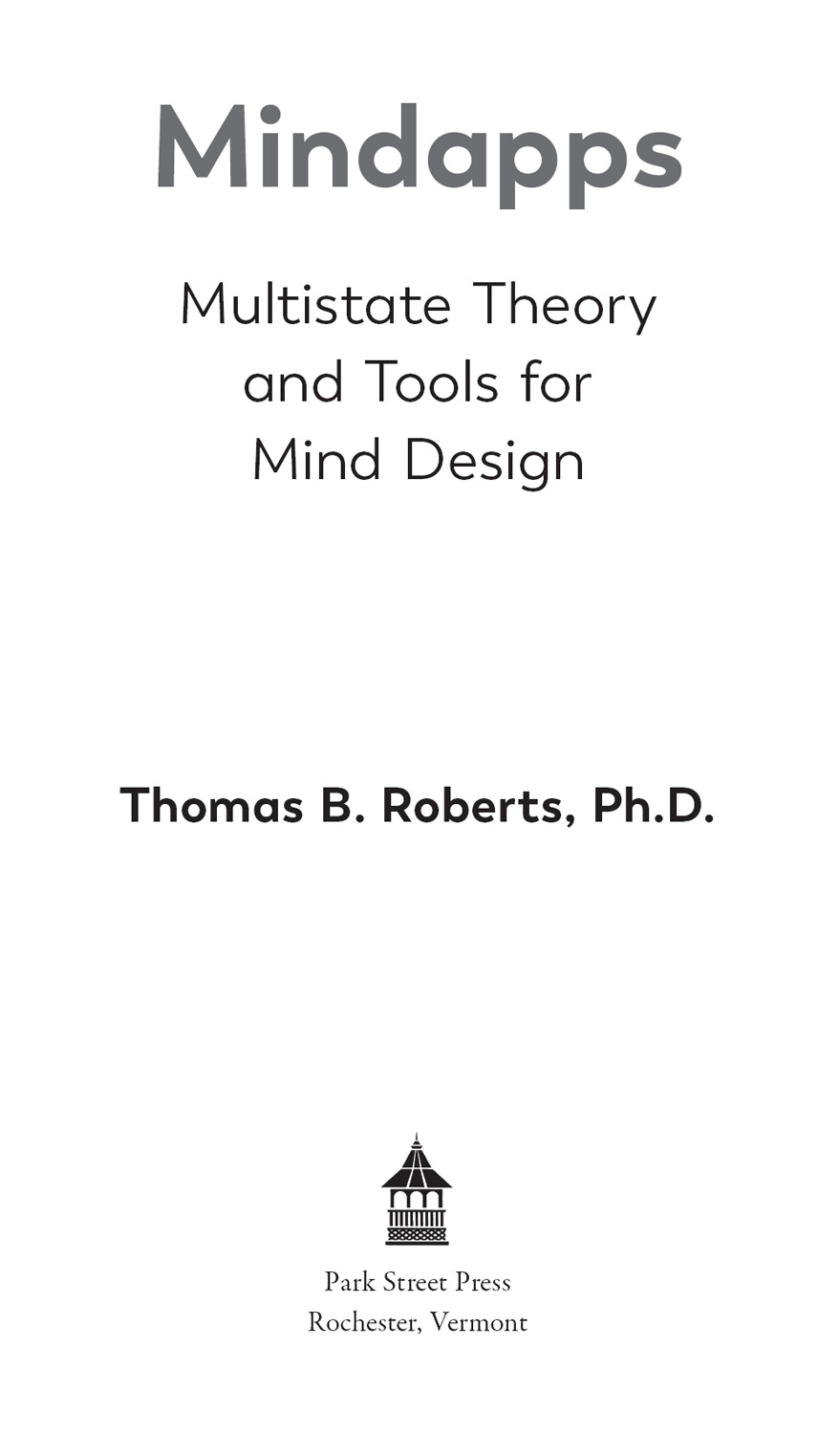
To Susan
With love and enormous gratitude for your care. May 30, 1982, was the luckiest day of my life, and youve enriched every day since.
To Becca
Im proud of you and love you. You make me happy to be your dad, and I look forward to seeing how you develop your life.
To my coworkers in the psychedelic vineyardspublic and private, known and unknown, full time and part timewho have served in this generations-long project for public benefit from psychedelics.
Mindapps

Thomas Roberts is a lot of things: a writer, an inspiration for people entering the world of psychedelic research, a trickster, and a wizard. But above all, he is an educator. He has been in the game a long time, and his ideas and hypotheses are always worth listening to. In Mindapps, Tom takes us once again into a world of creative hypotheses and unique narratives that force the reader to sit up and take notice. The concept of the mindapp as a new paradigmsomething to replace the outdated concept of consciousness itselfis exactly the kind of approach that our contemporary tech-savvy society is in need of. I highly recommend this book. Read it. Then, years from nowwhen this is the stuff of mainstream scientific and cultural knowledgeyou can say you were alongside the early pioneers of a new way of thinking about brain states, mind states, and psychedelics.
DR. BEN SESSA, PSYCHIATRIST, RESEARCHER, WRITER, AND COFOUNDER AND CHAIR OF BREAKING CONVENTION
In Mindapps, Thomas Roberts masterfully explores the various practices and techniques available to us, be they ancient, chemical, or technological. He looks at the potential development of fresh new mindapps and the potential of producing novel mind states through the synergy of using multiple mindapps at the same time. A case is passionately made for the value of altered and alternative states of consciousness and how these can not only yield new ideas but also improve creativity, open-mindedness, problem-solving and inner-brain connections. The information presented in Mindapps should be of great interest to thinkers and explorers of consciousness. I gladly recommend it.
AMANDA FEILDING, FOUNDER AND DIRECTOR OF THE BECKLEY FOUNDATION
I found Thomas Robertss book Mindapps to be very engaging and thought-provoking proof that the psychedelic renaissance is maturing and that psychedelics can be ideagens.
ROBERT TIM SCULLY, CREATOR OF ORANGE SUNSHINE
Thomas B. Roberts, Ph.D., professor emeritus at Northern Illinois University, has been an organizing force in the global psychedelic movement. His new book is itself a history of the psychedelic revolution. He argues convincingly that apps are to devices as mindapps are to the mindbody. Whether the mindapp is psychotherapy, meditation, near-death experiences, or psychedelics, they can expand our mental powers, creative abilities, and generate new ideas and ways of thinking.
ALLAN BADINER, EDITOR OF ZIG ZAG ZEN: BUDDHISM AND PSYCHEDELICS
As psychedelic substances increasingly become integrated into our culture in responsible ways as facilitators of mental health, spiritual development, and new knowledge in a variety of academic disciplines, this carefully researched and visionary book contributes innovative language and concepts to support, challenge, and guide us on the path forward.
WILLIAM A. RICHARDS, S.T.M., PH.D., PSYCHOLOGIST IN THE PSYCHIATRY DEPARTMENT OF THE JOHNS HOPKINS SCHOOL OF MEDICINE AND AUTHOR OF SACRED KNOWLEDGE
Mirroring its central thesis that the mind is multiple and its states of consciousness at once vast, ecstatic, and creative, this book is so many things all at oncea psychedelic autobiography; an education in human potential; a plea to revise the sciences and save the humanities through new psychedelic approaches to neuroscience, art, literature, music, and philosophy; a call for new mental technologies to literally and definitively change our minds; and a whos who of the American psychedelic intellectual landscape from the 1970s to today. Here is a perfect entry point into a whole series of glistening subjects that have yet to see their full day.
JEFFREY J. KRIPAL, AUTHOR OF SECRET BODY: EROTIC AND ESOTERIC CURRENTS IN THE HISTORY OF RELIGIONS
An important resource for anyone interested in psychedelics and the mind. Professor Roberts has an intimate and encyclopedic knowledge of the subject, having taught it to undergraduates for 32 years. Mindapps brings ancient practices and techniques together with contemporary science of the mind to produce ideagensnew ideas and new ways of thinking.
MALCOLM DEAN, RESEARCH AFFILIATE IN THE BRAIN RESEARCH INSTITUTE AND HUMAN COMPLEX SYSTEMS GROUP AT UCLA
Editors Note
The reader will encounter bolded names and phrases throughout the book. Each name or phrase given in bold is linked to a numbered endnote found in the notes section, grouped by chapter. These endnotes provide information on additional resources as well as the usual source citations.

This book is about mental vastness.
Foreword
By James Fadiman, Ph.D.
Mindapps is the first book to truly address the issues we all will confront as the current what is consciousness? paradigm continues to dissolve and waves of new research and reported experiences accumulate.
Roberts artfully lays out the critical agenda to connect a new paradigm to a dozen fields (keep in mind that it was LSDs resemblance to serotonin that led to the explosive growth of neuroscience). The book is chock full of suggestions on how to integrate psychedelic insights and observations into a more inclusive worldview, not only of consciousness but of human inner experience, multifaceted awareness of state specific learning, and a redefinition of identity. Roberts also describes the major issues that will need to be integrated to form a reimaging of philosophy, ethics, religions (and religious experience), and ecology, including our relationships with the natural world and the nature of deathwhat dies and what persists? Theres even a chapter of how mind maps, derived from psychedelic experiences, could transform literary criticism.
In Robertss vision, psychonauts will need special training, just as botanists or microbiologists or anthropologists do. He outlines the need for new forms of education to accelerate the evolution of observational science and goes on to develop how such retraining could be successfully institutionalized.
Thank you, Tom Roberts, not only for drawing the new map but also for describing how to use the tools we need for more detailed and accurate map making.
JAMES FADIMAN, PH.D., is the author of The Psychedelic Explorers Guide: Safe, Therapeutic, and Sacred Journeys as well as coauthor with Jordan Gruber of the book Healthy Selves: Who You Are and Why You Dont Know It. Along with being an international presenter and consultant, Fadiman teaches at the Institute of Transpersonal Psychology, which he helped found in 1975. He is also the former president of the Institute of Noetic Sciences.


